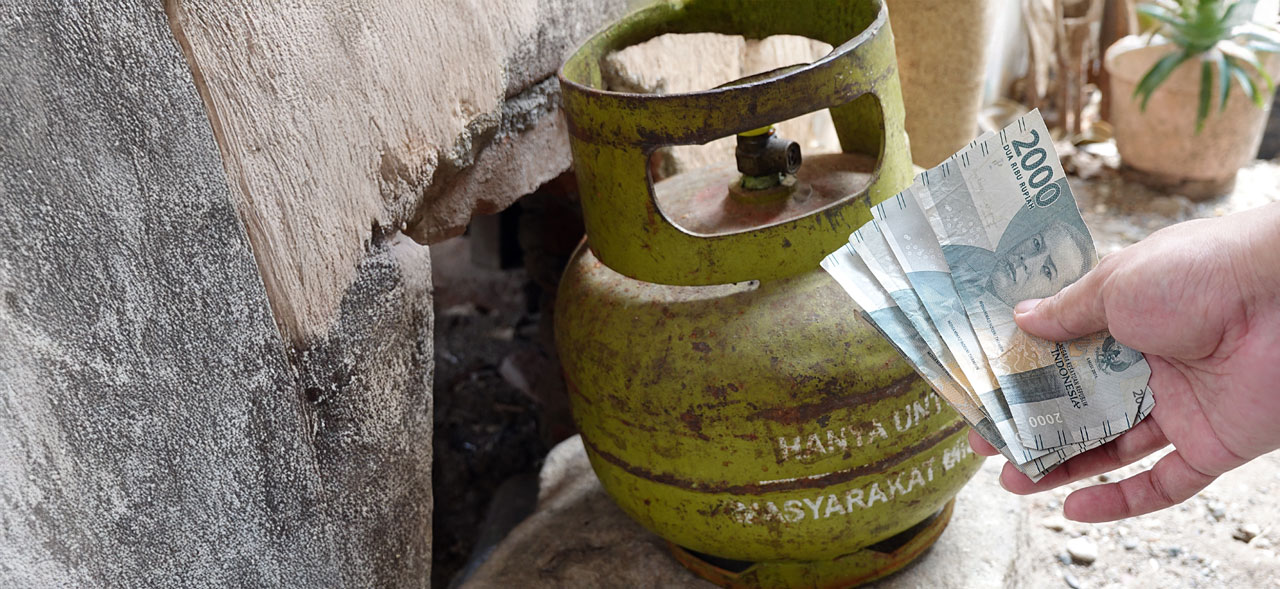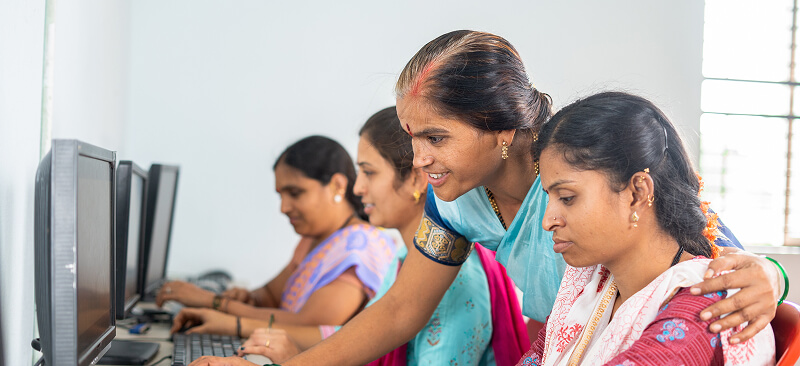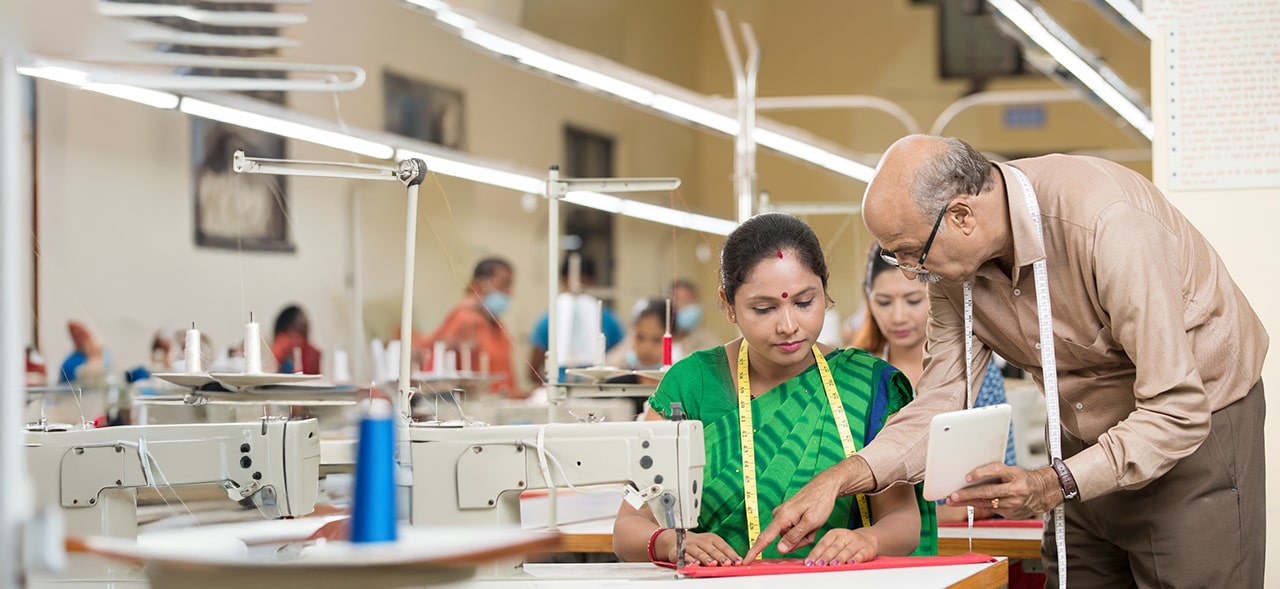
Governments and development partners across the world are working to improve the way they deliver social protection and government-to-person (G2P) payments. However, many face challenges in reaching the right people effectively and efficiently. To address this, MSC conducted a global assessment to understand how social protection programs function from start to finish. The goal was to uncover common barriers and recommend improvements that can make these programs more inclusive, accurate, and user-friendly.
MSC led an in-depth study on social protection and G2P programs across several countries in Africa and Asia, including Kenya, Uganda, Tanzania, Nigeria, Zambia, India, Indonesia, Pakistan, and Bangladesh. We also reviewed programs in Colombia and Estonia to capture regional diversity. Based on this research, MSC developed a framework that improves the design and delivery of social benefits. We highlighted best practices to target beneficiaries, design delivery systems, train providers, measure results, and improve cost efficiency.
The project provided practical guidance to policymakers and program designers on how to make G2P systems more effective. It helped stakeholders understand what works and what does not, across various country contexts. Our findings and framework contributed to refining global strategies to design, digitize, and deliver social protection programs, to ensure they are efficient and people-centric.
The Gates Foundation commissioned the project.

The Government of Indonesia sought to reform its food subsidy system to make it more efficient and responsive to the needs of low-income households. The new program, Bantuan Pangan Non-Tunai (BPNT), was introduced to replace the older Beras Sejahtera (Rastra) system. BPNT intended to deliver food subsidies through a non-cash, digital platform that would improve transparency, reduce leakages, and offer more choice to beneficiaries.
MSC helped the government design, pilot, implement, and evaluate the BPNT program. We worked across 44 cities to test the program with 1.3 million beneficiaries. Our team assessed how well the program components worked. These included digital payment systems, the food supply chain, communication strategies, grievance redress mechanisms, and the verification process for selecting beneficiaries. MSC provided detailed feedback and recommendations that helped the government strengthen the program design. Based on MSC’s evaluation and recommendations, the government improved the communication approach and made the subsidy experience smoother for beneficiaries. These changes helped build trust and improve access. The government scaled up the program from 44 to more than 200 cities, reaching over 15 million people. MSC also conducted a national-level study to guide ongoing improvements and ensure the program remains responsive to the needs of its users.
The project was commissioned by the Gates Foundation.

The Government of India has been working to make its fertilizer subsidy program more efficient, transparent, and targeted. To support this effort, MSC provided technical assistance to the Department of Fertilizers to redesign the subsidy mechanism through Direct Benefit Transfers (DBT) and improve fertilizer use efficiency across the country. The reforms sought to curb leakages, rationalize usage, and improve targeting to support both fiscal sustainability and soil health.
MSC conceptualized and designed the DBT system in the fertilizer subsidy program. We led the pre-pilot in two districts of Andhra Pradesh, followed by implementation support for a larger pilot in 14 districts and the eventual national rollout. At each stage, we conducted rapid and concurrent evaluations to guide program refinement. Our recommendations helped the government reduce leakages and improve monitoring. We also proposed key improvements, such as bringing urea under the Nutrient-Based Subsidy (NBS) scheme, building a farmer database, introducing fertilizer entitlements, and piloting Direct Cash Transfers (DCT) to farmers. MSC designed the DCT pilot and assessed the digital readiness of states for its rollout.
To complement these efforts, MSC evaluated the Soil Health Card (SHC) scheme through a nationwide study in 2018. We suggested establishing decentralized, real-time testing facilities with active farmer engagement. We also assessed the impact of Neem Coated Urea (NCU) and changes in urea packaging on fertilizer consumption patterns.
MSC’s work helped the government save approximately USD 2.2 billion by March 2022, largely due to reduced diversion and overuse, amounting to 15 million metric tons of fertilizer. The interventions also contributed to a reduction of urea use per hectare by 8%, signaling progress toward more balanced fertilizer usage and improved soil health.
The Gates Foundation commissioned the project.

This program was conceptualized under SIDBI’s C2D2E (Conductor to Driver to Entrepreneur) initiative, aligned with the ‘Dreams Through Women in E-mobility’ vision. The program aimed to promote gender inclusivity in traditionally male-dominated transport services. It created dignified livelihood opportunities for women and strengthened institutional capacity for gender- responsive practices.
MSC partnered with Capital Region Urban Transport (CRUT) to design and implement targeted training and support systems for women in Odisha’s public transport sector. The intervention focused on building the capabilities of female guides working in CRUT’s electric bus fleet through customized training modules covering communication, customer service, conflict resolution, grievance resolution, technical skills, and gender sensitization. In addition to training 242 female guides across four cities—Berhampur, Sambalpur, Rourkela, and Bhubaneshwar, we also trained over 113 male staff and depot teams to promote a safer and more inclusive work environment.
MSC developed a comprehensive knowledge base and toolkit for CRUT staff to continue training and embed gender-sensitive practices independently. The team further provided operational, administrative, and HR recommendations to strengthen CRUT’s internal systems and foster long- term inclusivity.
The initiative enhanced the skills and confidence of female guides to enable their sustained participation in the public bus system. It improved the commuter experience through better customer engagement and gender-sensitive service thus fostering workplace inclusion at all levels. The program also laid the foundation for future interventions, such as the inclusion of female bus drivers and expanded last-mile connectivity solutions.
Small Industries Development Bank of India (SIDBI) and Capital Region Urban Transportation (CRUT) commissioned the project.

The ‘Strengthening employment generation and skill development’ initiative was launched to support India’s response to large-scale employment losses in the wake of the COVID-19 pandemic. To develop a strategic roadmap for job creation, the Government of India constituted a Working Group of Ministers (WGoM) on Employment and Skill Development. MSC served as the secretariat to the WGoM and worked closely with the government and 18 sectoral experts to drive the initiative forward.
MSC provided comprehensive secretarial and advisory support to the WGoM. It helped coordinate consultations with key stakeholders, combining sectoral insights, and applied a structured framework to assess the feasibility, cost-effectiveness, scalability, and time horizon of employment generation strategies. We ensured that the recommended strategies were gender-intentional and transformative. We particularly focused on increasing women’s participation in the workforce. The team facilitated discussions across line ministries and supported the finalization of a consolidated national action plan to inform government decision-making.
The initiative delivered a high-impact employment strategy with the potential to generate approximately 170 million jobs over five years. It proposed structural reforms that could positively affect more than 600 million women by addressing barriers to female labor-force participation. The strategy also projected investments of USD 170 billion from the private sector and USD 27 billion from the government. Covering 18 high-priority sectors and themes, the project laid the foundation for innovative institutional ideas, such as the establishment of a National Employment Fund. The final action plan was widely discussed with concerned ministries and positioned as a key policy input to boost employment across India.
The Gates Foundation and the Government of India commissioned the project.

The Swavalambini initiative was launched under the Women Entrepreneurship Platform (WEP) by the Ministry of Skill Development and Entrepreneurship (MSDE) and NITI Aayog to strengthen women-led development in India. The program intended to shift the narrative from women as scheme beneficiaries to women as leaders and entrepreneurs by building structured pathways to entrepreneurship within Higher Education Institutions (HEIs).
MSC helped MSDE conceptualize, design, and implement the Swavalambini programme across multiple states. We developed a structured, stage-wise journey for aspiring women entrepreneurs and delivered key interventions, including the Entrepreneurship Awareness Programme (EAP) and the Women Entrepreneurship Development Programme (WEDP). It covered areas such as business planning, finance, compliance, and marketing. The team also facilitated Faculty Development Programmes (FDPs) to build mentoring capacities within HEIs, while it also provided structured mentorship and handheld support to guide participants from ideation to enterprise.
As part of the initiative, MSC designed and managed business plan competitions to identify high-potential ideas, developed monitoring and evaluation tools, and worked closely with ecosystem partners to enable national-level implementation. Through these efforts, the programme established institutional mechanisms that support women entrepreneurs within HEIs and beyond.
The initiative trained 900+ women across 10+ HEIs in states such as Uttar Pradesh, Telangana, Odisha, and several Northeastern regions. Of these, 300 women were selected for intensive support through WEDP, with 10% expected to launch enterprises. The program enhanced institutional capacity for long-term mentoring and created a supportive, women-led entrepreneurial ecosystem within higher education. It also facilitated access to seed funding and recognition through a NITI Aayog-led reward initiative, to contribute meaningfully to India’s broader women-led development agenda.
The Ministry of Skill Development and Entrepreneurship and NITI Aayog commissioned the project.





